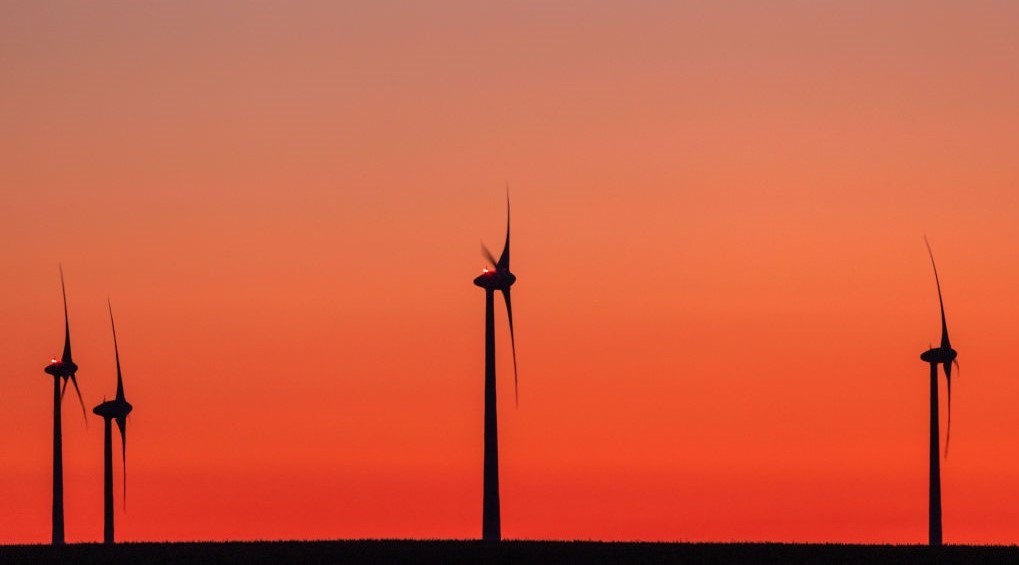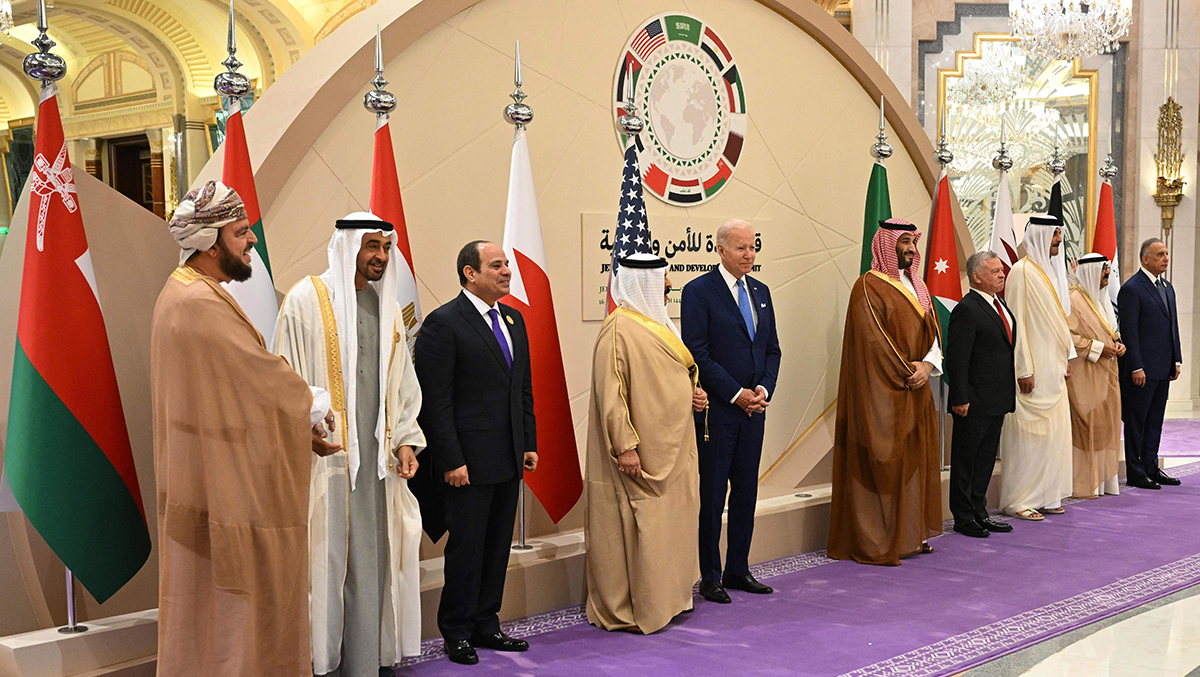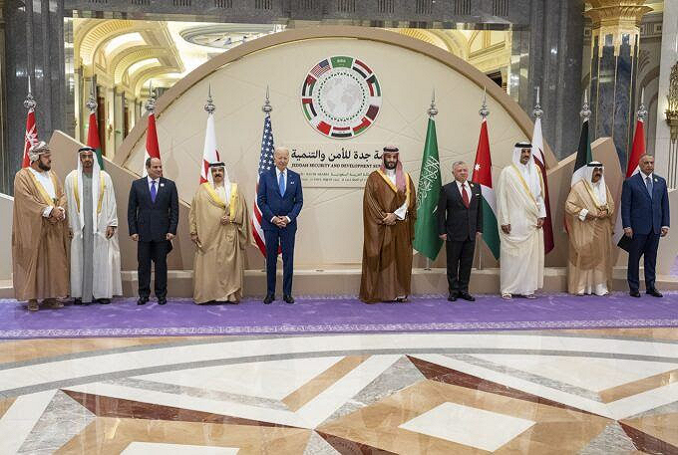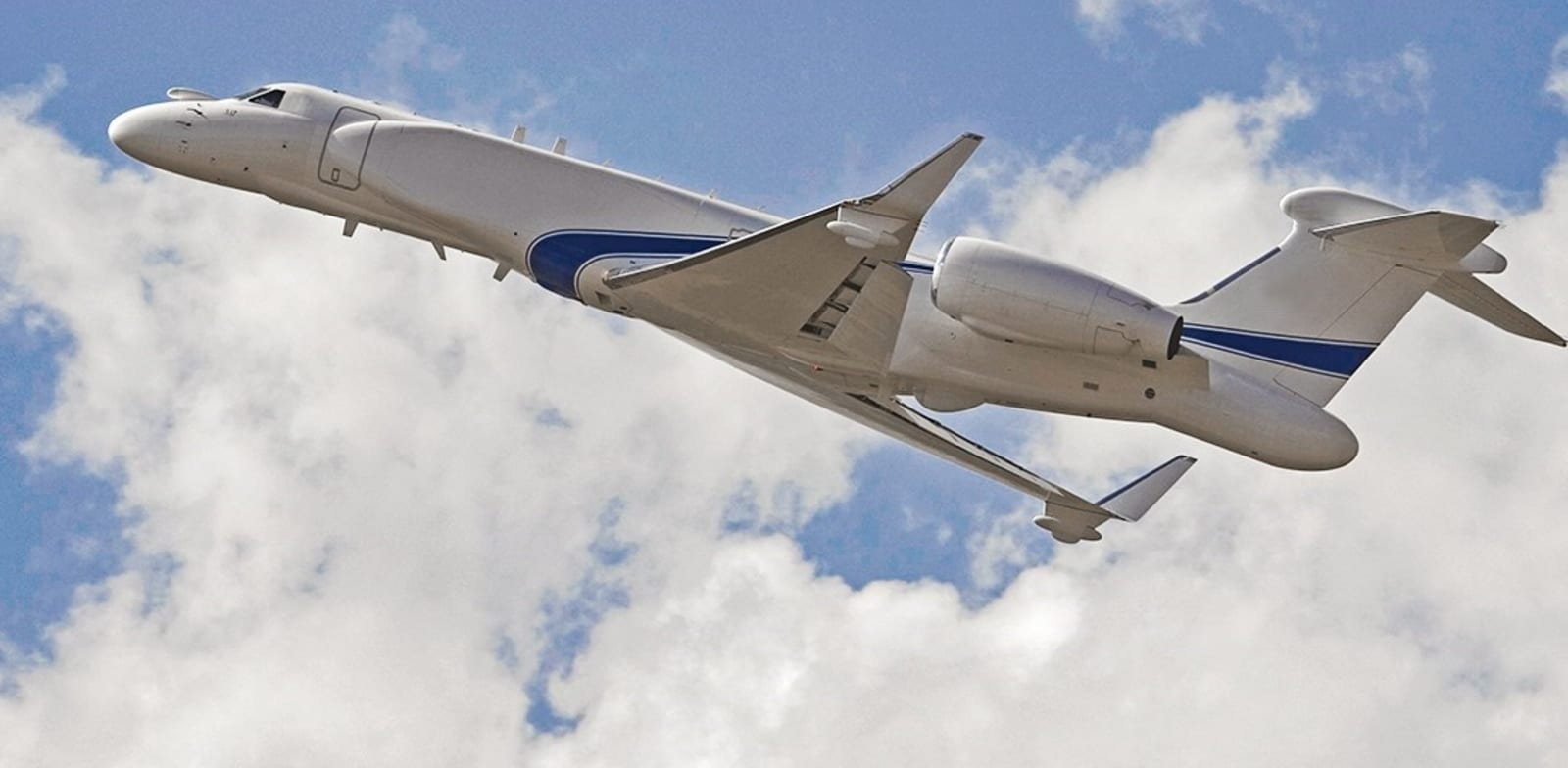[ad_1]
For many years, a rustic’s relative power safety was outlined nearly solely by its inventory of hydrocarbon reserves, its wind-, solar-, and hydropower era potential, in addition to the bodily or industrial ties it maintained with overseas companions to make sure safety of provide and to fulfill home power demand. As environmental issues have elevated, nationwide governments started extra methodically steering towards low-emission applied sciences that would effectively make use of their nations’ pure useful resource potential. Important minerals, equivalent to cobalt, titanium, palladium, and numerous uncommon earth metals — important elements for manufacturing these “inexperienced” applied sciences — have, thus, grow to be seminal for superior economies pursuing an power transition away from fossil fuels.
Russia’s motivation for invading Ukraine certainly encompasses a variety of strategic, ideological, political, and financial causes. And whereas it might not have been a important think about prompting the full-scale aggression launched on February 24, 2022, one consideration within the Kremlin was seemingly Ukraine’s giant reserves of essential metals and their international strategic significance within the a long time to return. The Ukrainian exit from this house has explicit strategic relevance presently. Particularly, the armed battle on Europe’s doorstep has pressured Western societies to rethink their dependence on power imports from Russia and to ramp up the transfer to non-renewable sources of power. However the cutoff of entry to Ukrainian sources, mixed with the character of the partnership between Moscow and Beijing — with China being the biggest provider of the mandatory essential minerals — might endanger the very notion of the West’s power transition.
Is Russia’s aggression in Ukraine additionally about mineral sources?
Europe’s long-term technique to part out fossil gas use has endangered Russia’s important supply of state income, forcing the Kremlin to concentrate on buying, a method or one other, a brand new, future-proof high-value export — essential minerals.
Regardless of benefiting from the fourth-largest uncommon earth metals reserves on the planet, Russia has all the time struggled to scale its output on this sector. Though the nation is a serious international provider of palladium, scandium, and titanium, in addition to an necessary vendor of nickel and cobalt, it was not perceived as one of many important gamers in international markets, dominated at the beginning by China. In 2020, the Kremlin pledged the equal of $1.5 billion of investments in uncommon earth metals, in an try to grow to be the second-largest producer after China, by 2030. However the fruits of this initiative are but to materialize.
Ukraine, in flip, can also be among the many most richly endowed European nations on the subject of uncommon earth metals and lithium reserves, with estimates of the worth of those deposits starting from $3 trillion-$11.5 trillion. In 2021, the European Union signed a strategic partnership on uncooked supplies with Ukraine, which generated a surge in curiosity from personal corporations. Given Ukraine’s huge mineral sources, mixed with Russia’s personal ambitions to bolster its market affect over this house, some specialists have questioned to what diploma Russia’s present aggression in opposition to its southwestern neighbor might have been pushed by a need to put declare to these Ukrainian reserves.
On this context, Russia’s incursions into the southern and japanese areas of Ukraine is probably not motivated solely by army calculations, contemplating that almost all of Ukraine’s essential supplies reserves are positioned there. Comparable causes have been seemingly a minimum of partly behind the annexation of Crimea in 2014, when Russian army actions additionally notably focused Ukrainian pure gasoline reserves off the coast of the peninsula (totaling as much as 13 trillion cubic meters).
Determine 1: Uncommon earth minerals reserves in Ukraine
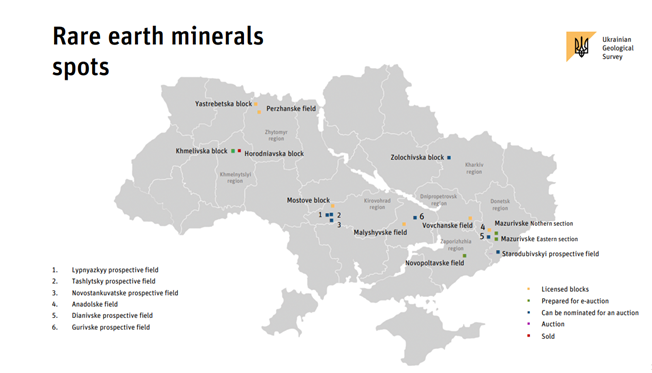
Determine 2: Lithium reserves in Ukraine
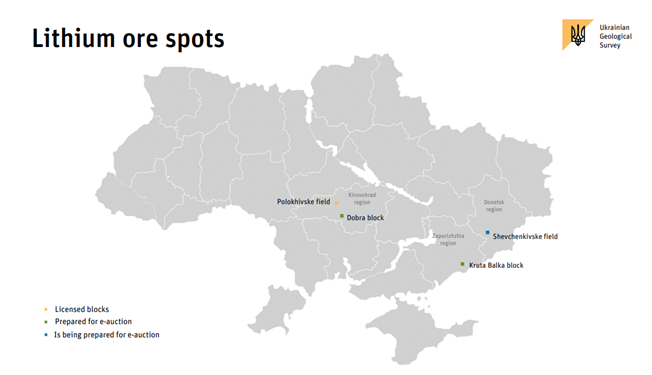
Consequently, as CBC Information senior protection author Murray Brewster lately argued, the warfare’s ending “has the potential to safe both Ukraine or Russia’s financial future for the subsequent century.” The Kremlin’s management over these essential mineral reserves can be a game-changer, permitting Russia to extend its affect over a number of aspects of Western nations’ power safety spectrum. Nonetheless, controlling these reserves shouldn’t be synonymous with their quick commercialization, because the extraction and refining processes aren’t any easy duties.
Uncommon earth metals and their position within the power transition course of
The American Geosciences Institute’s record of essential minerals encompasses “uncommon earth metals and different metals equivalent to lithium, indium, tellurium, gallium, and platinum group parts.” Their shared significance is that they’re essential within the manufacturing of varied superior applied sciences, together with, notably, clear power era property (photo voltaic photovoltaics and wind generators, particularly offshore ones), battery programs (utility scale, family scale, and batteries for electrical automobiles), in addition to numerous digital applied sciences (wanted within the power transition course of but additionally within the broader international info know-how and communications sector).
Even previous to Russia’s full-scale re-invasion of Ukraine, the essential minerals markets confirmed placing wholesale value will increase, which have been generated by a number of elements. First, as manufacturing sectors usually reopened after a number of COVID-19 pandemic restrictions, a sudden improve in demand for essential metals brought on a value surge in international sources markets in 2021. Second, rising demand for inexperienced applied sciences (particularly batteries and electrical automobiles), pushed by mounting issues over local weather change, translated into increased wholesale costs, particularly for his or her important parts, equivalent to lithium and cobalt. Third, with governments all over the world pledging net-zero carbon emission targets — together with by means of increase nascent green-technology sectors that may assist restart their economies — the prospects of main investments within the inexperienced sector induce bullish developments for merchants.
Determine 3: Important minerals value evolution in 2021

The geopolitics of essential minerals
Regardless of their identify, the subset of essential minerals often called “uncommon earth metals” aren’t essentially uncommon. Nonetheless, usually, their extraction and refining processes are difficult operations, particularly in gentle of environmental safety provisions in Western nations.
Thus, greater than 60% of uncommon earth metals are mined by Chinese language entities, both domestically or by means of long-term concessions overseas, principally in Africa. The refining course of of those parts is much more lopsided in China’s favor, with the nation controlling greater than 85% of the worldwide market share. Furthermore, Beijing’s “Made in China 2025” financial growth plan, which goals to additional advance a vertically built-in technique round uncommon earth metals, has been moreover upending worldwide markets.
Determine 4: Extracting and processing markets and their gamers
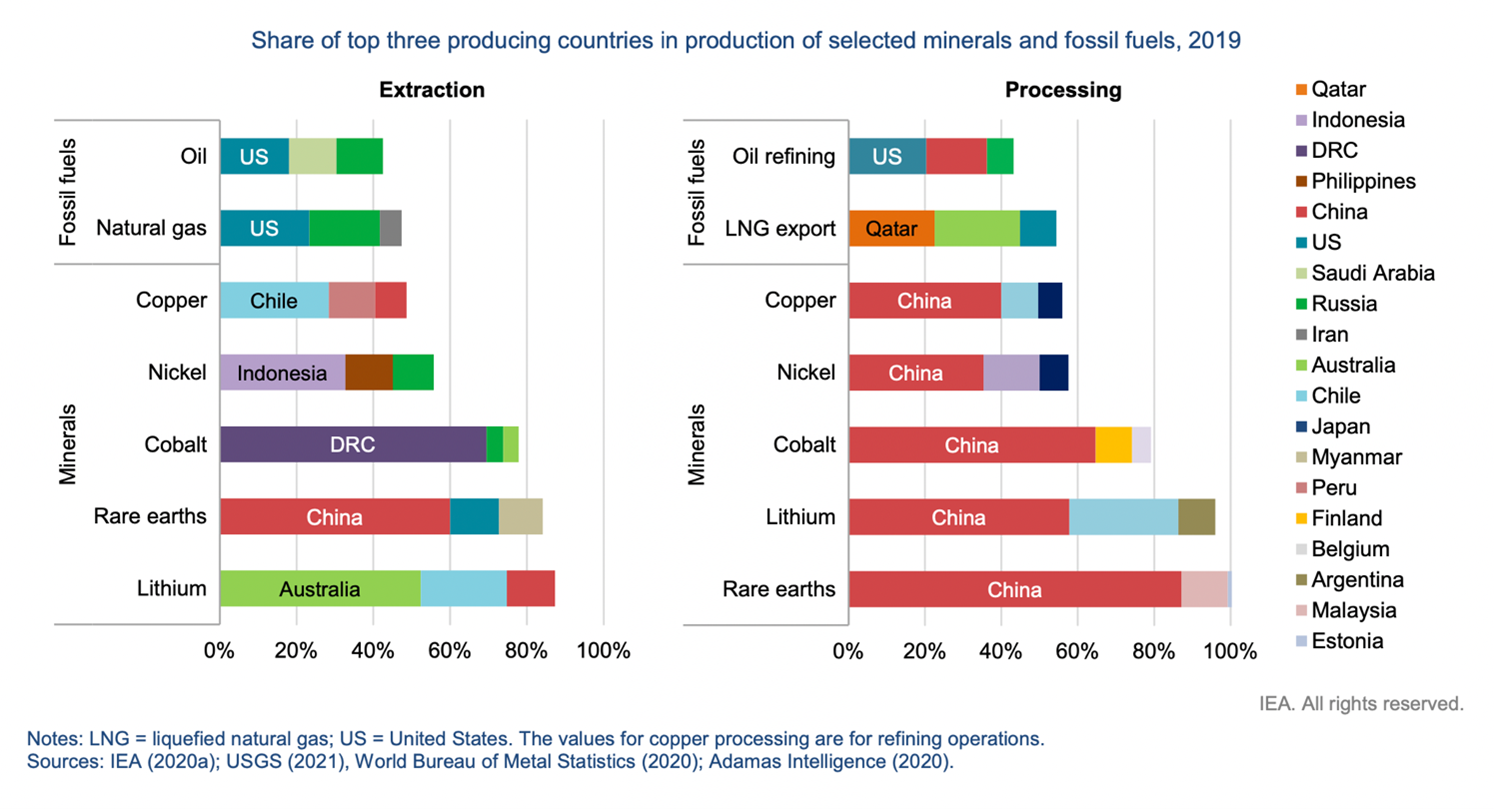
The supply of essential minerals in Euro-Atlantic nations was all the time low, both because of the pure geographical distribution of those reserves or as a result of numerous environmental issues hindered potential exploration. Thus, European and North American hopes lay, as an illustration, within the lithium reserves out there in Australia. Nonetheless, China’s restricted or non-existent environmental provisions for essential minerals mining, mixed with its poor labor circumstances and rules, have stored Chinese language mining corporations’ prices low, thus making a stage taking part in discipline on this market nearly unattainable internationally.
Anticipated evolution of uncommon earth metals markets within the current context
With Europe and the US transitioning to a low-carbon financial system, thus necessitating a speedy adoption of fresh power applied sciences and decreasing their dependence on Russian hydrocarbon exports, the demand for essential and uncommon earth metals will proceed to rise. Consequently, whereas making an attempt to lower their reliance on one dominant provider of power commodities (Russia), Western societies are inevitably tying, a minimum of to some extent, their longer-term financial growth to a different one (China), presumably and inadvertently establishing an much more harmful partnership for essential and uncommon earth minerals. Furthermore, Moscow and Beijing’s formal (and particularly casual) partnership would possibly moreover exacerbate these developments.
Aside from the drivers that generated increased costs in 2021, the present context might create additional bullish elements. In a situation whereby Russia features management and, ultimately, makes use of Ukraine’s essential minerals, Western financial sanctions would consequently apply to those sources too, sustaining and probably even rising their costs on the worldwide wholesale markets.
The choice for the West — creating new mining and processing amenities in Australia, Europe, and the US — will take time and monetary sources, thus slowing down the power transition course of. Nonetheless, some choices are at present being explored.
The European Union lately issued its “2022 Strategic Foresight Report: twinning the inexperienced and digital transitions within the new geopolitical context,” which additionally goals, within the medium and long run, to unlock “sustainable entry to uncooked supplies.” However whereas some European nations have began exploring these new mineral exploitations choices, environmental protests have surged, notably in Spain or Serbia. In distinction, the Norwegian Bjerkreim Exploration Venture — which seeks to entry one of many largest estimated international deposits of vanadium, titanium, and phosphate — apparently enjoys better public assist.
Moreover, Turkey claims to have found the world’s second-largest reserves of uncommon earth metals (as much as 694 million tons). In line with Fatih Dönmez, Ankara’s minister of power and pure sources, 10 sorts of uncommon earth metals (out of 17, in complete) will likely be processed from the central Anatolia area, at an annual charge of 570,000 tons of ore. He estimated that about 10,000 tons of uncommon earth oxide will likely be obtained from the ore processing, along with a further 72,000 tons of baryte, 70,000 tons of fluorite, and 250 tons of thorium. A pilot plant that may start by processing 1,200 tons of minerals yearly is predicted to be accomplished by the tip of this yr.
Regardless of these estimations, some specialists have been skeptical about Ankara’s claims. Nonetheless, if confirmed, Turkey’s position as a NATO member, in addition to its current partnership with the EU might basically change. On this situation, Turkey is not going to solely symbolize an alternate route for gasoline provide by means of Southern Europe, as it’s in the present day, but additionally grow to be the EU’s important manufacturing facility for inexperienced applied sciences. Its historic commerce partnership with the European Union (initiated as early as 1959) and relative proximity positions Ankara close to the entrance of the record of potential essential minerals suppliers to the European financial bloc.
Past discovering new sources of provide, the latest “World Uncommon Earth Metals Recycling Market Report 2022-2026” highlights vital alternatives for attaining a round financial system within the essential minerals sector. Notably, the uncommon earths recycling market is predicted to nearly double by 2026 (reaching $422 million, versus $248 million in 2021). Lastly, an alternative choice — restricted primarily to the transportation sector — is scaling up the manufacturing course of for rare-earth-free electrical drivetrains. Though this answer might partially remedy some challenges within the automobiles sector whereas additionally lowering the general demand for uncommon earth metals on wholesale markets, ramping up manufacturing will take years.
Because the “Local weather Change & Safety Affect Evaluation,” issued by NATO through the June 28-30 Madrid Summit, underlines, the power transition course of must consider the geopolitical dimension of essential minerals and, crucially, be certain that Allies develop “no additional dependencies […] on unreliable suppliers, together with Russia and China.” Russia’s direct curiosity in Ukraine’s vital reserves of essential minerals might, thus, endanger the very ideas of power transition and local weather neutrality being pursued by the Western world.
Andrei Covatariu is a Co-founder of ECERA (Ecological Economics Analysis for Motion), a community of practitioners aiming to provide policy-relevant data on the assorted aspects of sustainability. He’s additionally a Non-Resident Scholar with MEI’s Local weather and Water Program.
Picture by Jens Büttner/image alliance through Getty Pictures
The Center East Institute (MEI) is an impartial, non-partisan, non-for-profit, instructional group. It doesn’t have interaction in advocacy and its students’ opinions are their very own. MEI welcomes monetary donations, however retains sole editorial management over its work and its publications mirror solely the authors’ views. For an inventory of MEI donors, please click on here.
[ad_2]
Source link

